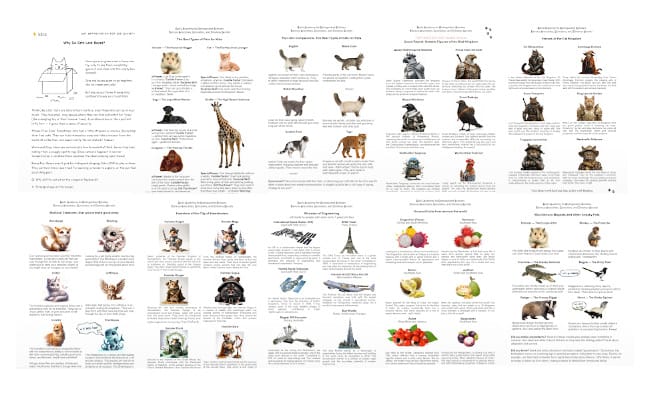The Paradox of Limited Time
Does the pressure to complete tasks come from the limited time we have, or the drive to seize opportunities before they're gone? When faced with tight schedules, our focus sharpens, distractions fade, and we often accomplish more.

Every morning begins with a flurry of activity. As the sun rises, so does the rhythm of our household. My son gets ready for school, and amidst the chaos, I craft little information sheets for him. He loves to read, and these sheets, filled with tales of mythical creatures, historical facts, and funny anecdotes, are his lunchtime delight.

The window to create them is small—I get about 15 minutes while drinking my morning coffee. Yet, every day, without fail, I get them done and printed on time, even as I juggle making breakfast, packing his lunchbox, and everything else.
It's a routine that defies the typical constraints of time. How is it that, with so many tasks demanding my attention, I manage to squeeze creativity into such a narrow frame? The answer lies in the paradox of limited time. The less time we have, the more we seem to accomplish. The pressure of a ticking clock, rather than being a hindrance, becomes a powerful motivator.
With abundant time, it's easy to fall into the trap of overthinking and procrastination
When faced with a tight schedule, the mind sharpens. Distractions fade, and a sense of urgency propels us into action. This phenomenon, often referred to as "flow," is where efficiency thrives. With abundant time, it's easy to fall into the trap of overthinking and procrastination. Tasks stretch beyond necessity, and productivity dwindles. But give me a constrained window—like those 15 minutes each morning—and the focus narrows, the essential tasks come into clear view, and everything aligns to make the most of the available time.
The constraints of limited time force us to prioritise, to strip away the non-essential, and to hone in on what truly matters. It's the same as coding under a tight deadline, where the focus shifts from perfection to functionality. A minimum viable product, created under time pressure, often becomes a masterpiece of efficiency and ingenuity. The same principle applies to those morning information sheets. With no time to spare, the ideas flow swiftly, the content crystallises, and the sheets are ready just as my son finishes his breakfast.
Reflecting on this, it's clear that the constraints of limited time can unlock new levels of efficiency and productivity. They compel us to work smarter, to innovate, and to find creative solutions within the confines of our busy lives. The small, steady steps taken each day add up over time, transforming into significant strides.
I often feel frustrated by the limited time I have compared to the abundance of ideas, but I strive to make the most of every moment I get. Ultimately, it's not about the quantity of time available, but the effectiveness of its use. Every moment counts, and under the right conditions, even the smallest fragment of time can become a powerful force for creation and progress.
It leads me to wonder, are we pushed by the lack of time, or is it by the need to act before the window of opportunity closes?




